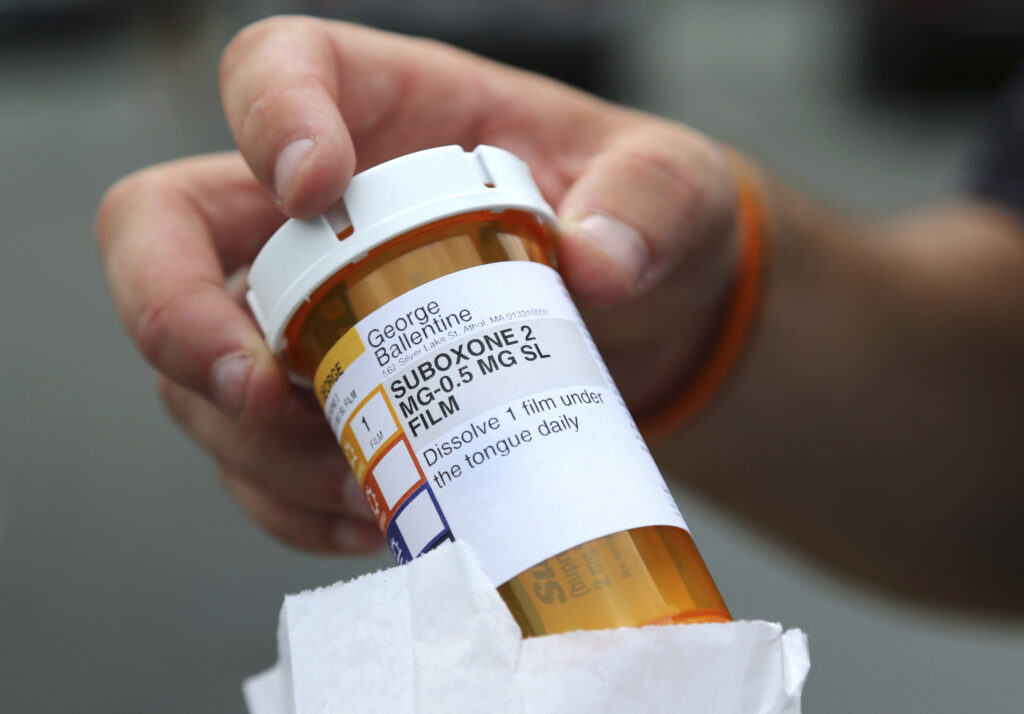
People in Tennessee die of overdoses at a higher rate than almost anywhere in the country. But one of the evidence backed-tools that could stem that tide gets a lot of blowback.
More than 3,000 Tennesseans died of opioid overdoses in 2022, according to state data. Only West Virginia and Washington, D.C. had higher death rates that year. In the same period, more than 10,000 Tennesseans sought care for a non-lethal overdose — on average, 27 people a day.
Experts say that one of the best ways to combat those deaths and overdoses is with “medication-assisted treatment” or MAT. The medications used in the treatment— like suboxone and methadone — are themselves opioids. But for people with high tolerances, appropriate doses don’t create a high. They stave off withdrawal and cravings. That prevents relapse and allows patients to get back to living a normal life while undergoing therapy and addressing the root cause of their addiction issues.
Dr. Harrison Gray, the medical director at a Cedar Recovery clinic in Nashville, said that he is one small part of the MAT treatment team.
“I can kind of hold the door open,” he said. “But what walks them through is therapy. I mean, that’s the heart and soul of any MAT clinic — helping people do the hard work.”
But there’s stigma attached to MAT, and that is having a concrete effect on patients in Tennessee. It’s driving opposition to new clinics, such as a methadone clinic Cedar Recovery proposed outside of Cookeville. The 12-county Upper Cumberland area doesn’t have one, so patients have to drive an average of 100 miles each way for the outpatient appointments.
State regulators held a hearing on the proposal in September, and about 100 residents made the trek to Nashville. A handful said they supported the project. They were met with criticism; some were called traitors as they walked back to their seats. Most speakers opposed the clinic, casting doubt on MAT’s efficacy, saying it threatened public safety and would bring gang violence to the area.
Even the people affected personally by overdose can be skeptical of MAT.
“I previously held that stigma,” Paul Trivette, chief strategy officer at Cedar Recovery, said. “My father died of a drug overdose in 2010. … But it wasn’t until one of my good friends I went to college with got help off of these medications that I started realizing that they had a place.”
Some concerns don’t carry weight after extensive study. Some people have expressed concern that these clinics bring violent crime to an area. Public health researchers have found that doesn’t happen with new clinics, and one team at Johns Hopkins found that crime rates are higher around liquor stores and gas stations than existing MAT clinics.
Another source of stigma, however, is rooted in reality. There are bad operators that take advantage of people. Trivette says that harms all clinics, and their patients.
“We can’t run away from the fact that methadone programs have also had a stigma because our colleagues that have operated them in the past have given it a black eye,” Trivette said. “Not all of them. They’re great. They’re great providers out there, but there’s also providers that try to circumvent rules or try to be motivated by money to say, Hey, we’re going to get people in no matter what.”
That was the topic of a New York Times investigation published this month. It looked into a Tennessee-based chain called Acadia Healthcare, which among other things runs methadone clinics nationwide.
The Times found the company operates under “sales” culture, trying to bring in as many patients as possible. In some locations, that included giving methadone treatment to people who were addicted to other drugs, like cocaine or methamphetamine. This wouldn’t help their addiction, and could instead give them a new one.
The Times says workers falsified these patients’ records to make it look like they were good candidates for methadone treatment. It also says patients were often deprived of the talk therapy and counseling that is supposed to coincide with methadone treatment.
This story is part of ongoing coverage about medication-assisted treatment and the opioid crisis.

